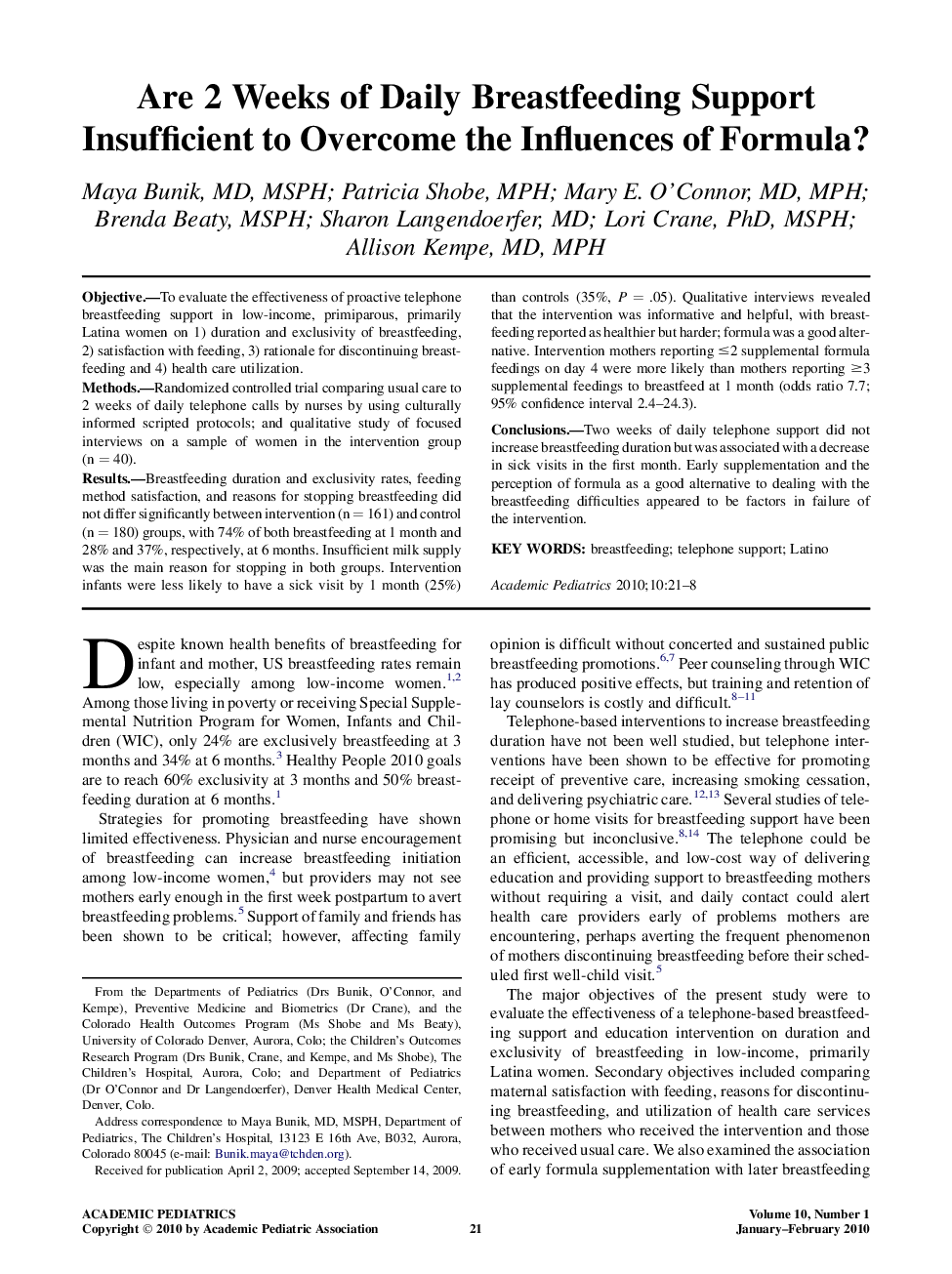| Article ID | Journal | Published Year | Pages | File Type |
|---|---|---|---|---|
| 4139984 | Academic Pediatrics | 2010 | 8 Pages |
ObjectiveTo evaluate the effectiveness of proactive telephone breastfeeding support in low-income, primiparous, primarily Latina women on 1) duration and exclusivity of breastfeeding, 2) satisfaction with feeding, 3) rationale for discontinuing breastfeeding and 4) health care utilization.MethodsRandomized controlled trial comparing usual care to 2 weeks of daily telephone calls by nurses by using culturally informed scripted protocols; and qualitative study of focused interviews on a sample of women in the intervention group (n = 40).ResultsBreastfeeding duration and exclusivity rates, feeding method satisfaction, and reasons for stopping breastfeeding did not differ significantly between intervention (n = 161) and control (n = 180) groups, with 74% of both breastfeeding at 1 month and 28% and 37%, respectively, at 6 months. Insufficient milk supply was the main reason for stopping in both groups. Intervention infants were less likely to have a sick visit by 1 month (25%) than controls (35%, P = .05). Qualitative interviews revealed that the intervention was informative and helpful, with breastfeeding reported as healthier but harder; formula was a good alternative. Intervention mothers reporting ≤2 supplemental formula feedings on day 4 were more likely than mothers reporting ≥3 supplemental feedings to breastfeed at 1 month (odds ratio 7.7; 95% confidence interval 2.4–24.3).ConclusionsTwo weeks of daily telephone support did not increase breastfeeding duration but was associated with a decrease in sick visits in the first month. Early supplementation and the perception of formula as a good alternative to dealing with the breastfeeding difficulties appeared to be factors in failure of the intervention.
